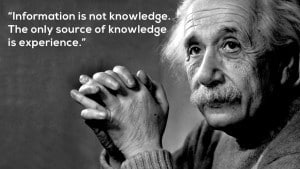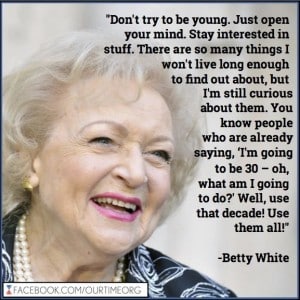In Confucian philosophy, filial piety (Chinese: 孝, xiào) is a virtue of respect for one’s parents, elders, and ancestors. filial piety means to be good to one’s parents; to take care of one’s parents. (Wikipedia)
My daughter recently said, “It’s not lost until Mom can’t find it.” And she truly believes it, because it’s happens time and time again that once I’m involved, the item is found. I think that is one example of why my children don’t dismiss their parents as ignorant old people. They realize we provide value in their lives.
But why is it that our society devalues the elderly? Why do young people today think the older you are, the less you know? Just because someone who’s older doesn’t know the latest pop sensation, or the latest expressions, or how to use the latest technology, doesn’t mean they can’t teach you a thing or two.

Look at the workforce. It’s common knowledge that after a certain age, it is more difficult to get a job because you’re older. Older people dye their hair and leave dates off their resume to hide their age, because they don’t want to be seen as someone ignorant to modern thinking. But what the younger generation doesn’t always understand is that older people bring a thought-process to the table that only comes with age and experience. For example, I don’t find my daughter’s missing item because I know where it is. I use a thought-process to access where it might be. Before setting out on the search, I always start with, “Think. When did you have it last? What were you doing? Where did you go?” When she takes the time to THINK, she either realizes where it is, or she leads me to a place where I find it.
Young people aren’t born with those problem solving skills. They learn them, just like they learn language. I learned it from my father, who learned it from his. Our children, in turn, will teach it to their children.
And so it has been, for the centuries, each generation learning valuable information from the elders; until the last one hundred years, during which time there has been a shift in thinking. But if we stop learning from our elders, then all the previous “experiments of life” have gone to waste. Do we have to experience a tornado for ourselves first hand before we realize the importance of going into the basement? Or do we accept the knowledge and experience of someone who already has “been there.”

This pendulum swing may have happened because youth was often discounted. If you didn’t have experience, your ideas didn’t count. But young people can often shed new light on a subject, so it’s also important to listen and learn from young people.
So instead of measuring people by age, simply share a discussion and learn from each other. The combination of wisdom through experience and fresh thinking is powerful.
Our elders have life experience that can guide our thinking. Our youngers open our thinking in new directions with the what ifs, adding to our knowledge base. Together, we make better decisions and find better solutions.
But keep in mind that there are some things only age can provide. Karl Pillemer talked to older Americans and learned about living well through hard times. He wrote about it in 30 Lessons for Living. He summarizes those teachings in this interview. It’s a reminder to embrace our age and embrace life.

